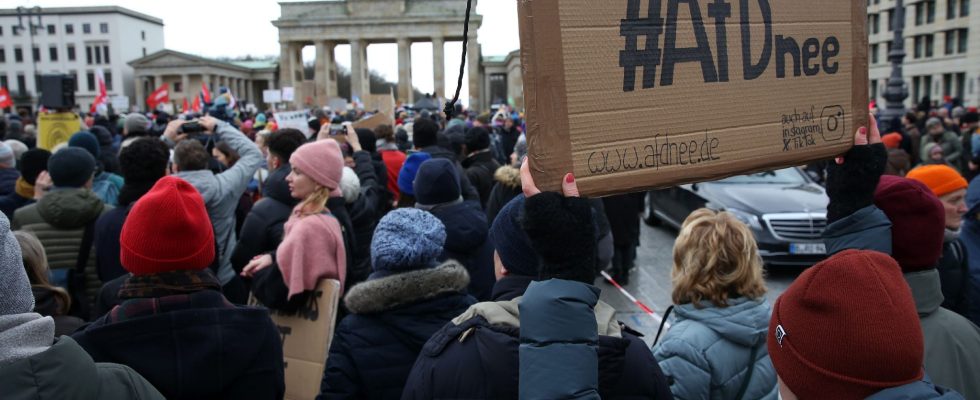Since the fall of the Berlin Wall in 1989, Germany had not accustomed us to French-style mass demonstrations, outside of football matches. The Second World War inoculated the Germans against any form of great march likely to send them back to their dark years. In one week, the face of the country changed. From January 15, following in the footsteps of the Dutch and ahead of many European countries including France, nearly 5,000 tractors blocked the streets of Berlin, honking their horns against the plan of Olaf Scholz’s government to remove a tax advantage on diesel. agricultural. The proposal to stagger the reform until 2026 was not enough to calm their anger. On January 19, another mobilization began, also on an unprecedented scale: in one weekend and in several cities in Germany, nearly 1.4 million people gathered in the streets against the far-right party. AfD, some of whose members, during a meeting that was intended to be secret, had plotted a vast project of “remigration” of foreigners and Germans of foreign origin to Africa.
These two simultaneous popular eruptions, unrelated to each other, reveal buried divisions and the deep existential crisis of a Germany accustomed for nearly two decades to prosperity and optimism, but brutally obliged, since the war in Ukraine, to fundamentally review its operating model, based on three pillars: gas supplied by Russia, the trade surplus absorbed by China, security provided by the United States. The first two have already collapsed, the third is about to explode under the pressure of a possible re-election of Donald Trump, who promised the end of NATO.
Coalition paralyzed by its contradictions
Traditional parties are overwhelmed by new expectations: Volksparteien, these large popular groups which were the Christian Democratic Union (CDU) and the Social Democratic Party (SPD), like the Greens and the Liberals, in a government coalition paralyzed by its contradictions and a Chancellor Scholz without authority. Even if the country’s industrial fabric, its trade surpluses, its public finances make its French neighbor jealous (whose debt is almost twice its own), the major parties do not provide solutions, nor to the expectations of farmers, general practitioners or train drivers on strike, nor to identity fears linked to immigration, demographic decline, loss of bearings or fear of downgrading, nor to the fall of 0.3% of GDP, which makes Germany, accustomed to an insolent economy, the worst student in 2023 among the major industrialized countries.
Identity crisis
Like the French National Rally, the AfD reaps the benefit of this vacuum, having the merit of having never been tried outside of participation in regional coalitions. The German far-right party has experienced a continuous rise since its appearance in the Bundestag in 2017 – a first since 1945. It is today credited with 22% of voting intentions for the European elections. This is less than the 30% lent to the list of Frenchman Jordan Bardella for the same election, but this party, unlike the National Rally, openly chooses radicalization and does not deny its neo-Nazi cores.
But the image of the AfD has been damaged following its “remigration” project and the massive demonstrations in the country. The party has just lost a municipal election in Thuringia which it was promised at a time when new nationalist parties were emerging. On January 2, Hans-Georg Maassen decided to transform the WerteUnion (Union of Values), the ultraconservative movement that he led within the CDU, into a party. Less than two weeks earlier, Sahra Wagenknecht, former MP for the far-left Die Linke party, created a party bearing her name. He wants to be economically on the left and politically on the right (anti-immigration, anti-woke, pro-Russian). Nationalist, socialist. The German political landscape is fragmenting, an image of the identity crisis sweeping through the country. A phenomenon which does not escape the vigilance of the Kremlin, at a time when the European Union is seeking more than ever to unite to support Ukraine. And while Putin awaits the return of Trump, his best ally against the EU.
.
